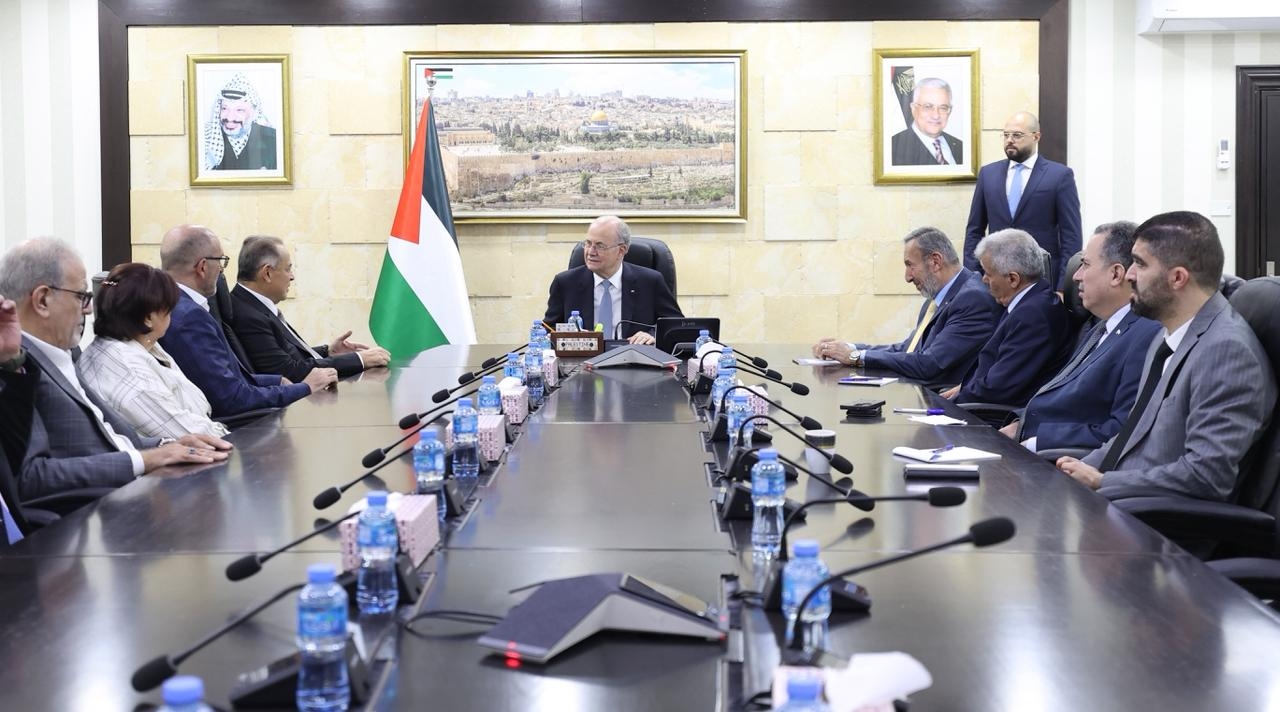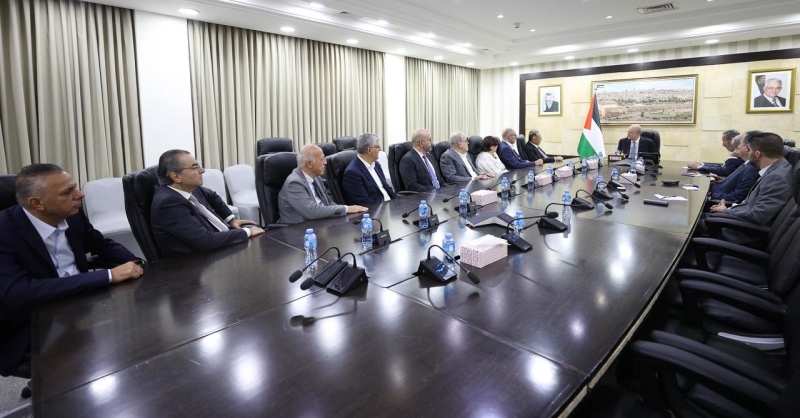
Prime Minister Dr. Mohammad Mustafa met in his office in Ramallah with Dr. Nabil Hani Qaddumi, Chairman of Taawon’s Board of Directors, and members of the Board to discuss ways to strengthen cooperation and expand joint programs, particularly in the fields of education, health, and orphan care. The meeting was attended by Minister of Education and Higher Education Dr. Amjad Barham, Minister of Justice Counselor Sharhabil Al-Zaeem, Secretary-General of the Council of Ministers Dwais Dwais, and Director of the Government Communications Center Mohammad Abu Rab.
Dr. Mustafa commended Taawon’s long-standing contributions across multiple sectors that enhance the resilience of Palestinians and strengthen national institutions. He praised the organization’s strategic focus on youth empowerment, innovation, and job creation, as well as its support for education, health, culture, and civil society. The Prime Minister emphasized the importance of continued collaboration to develop new initiatives that serve Palestinian communities and advance sustainable development.
Dr. Nabil Qaddumi presented an overview of Taawon’s key programs and impact in both the West Bank and Gaza, highlighting the NOOR Program for Orphan Care, which serves around 20,000 children in coordination with the Ministry of Social Development. He also noted Taawon’s efforts to support Gaza’s health sector and its educational initiatives in partnership with the Ministry of Education and Higher Education, particularly the ISNAD Program, which is working to secure approximately 15 million USD to cover tuition fees for university students in Gaza and to help local universities sustain e-learning by addressing critical financial needs, including salaries for academic and administrative staff.
Dr. Tareq Emtairah, Taawon’s Director General, described the meeting as an important step toward reinforcing coordination between public and civil efforts in the areas of education, health, and social welfare. He stressed that strong partnerships with local institutions are central to ensuring the sustainability of Taawon’s programs and maximizing their humanitarian and developmental impact across Palestine.
Minister of Education and Higher Education Dr. Amjad Barham highlighted that despite the challenging conditions in Gaza, the Ministry—working with partners such as Taawon—has succeeded in maintaining the educational process over the past two years through the establishment of virtual schools and an e-learning support center, as well as organizing high school exams both in Gaza and for Palestinian students in 37 countries worldwide. He added that the Ministry’s joint efforts with Taawon have supported the resumption of higher education through digital learning, the provision of thousands of scholarships, and partial coverage of tuition fees for students enrolled in Egyptian universities before the war. Work is also underway to secure additional financial resources to support students in Gaza and the Student Loan Fund in the West Bank.

